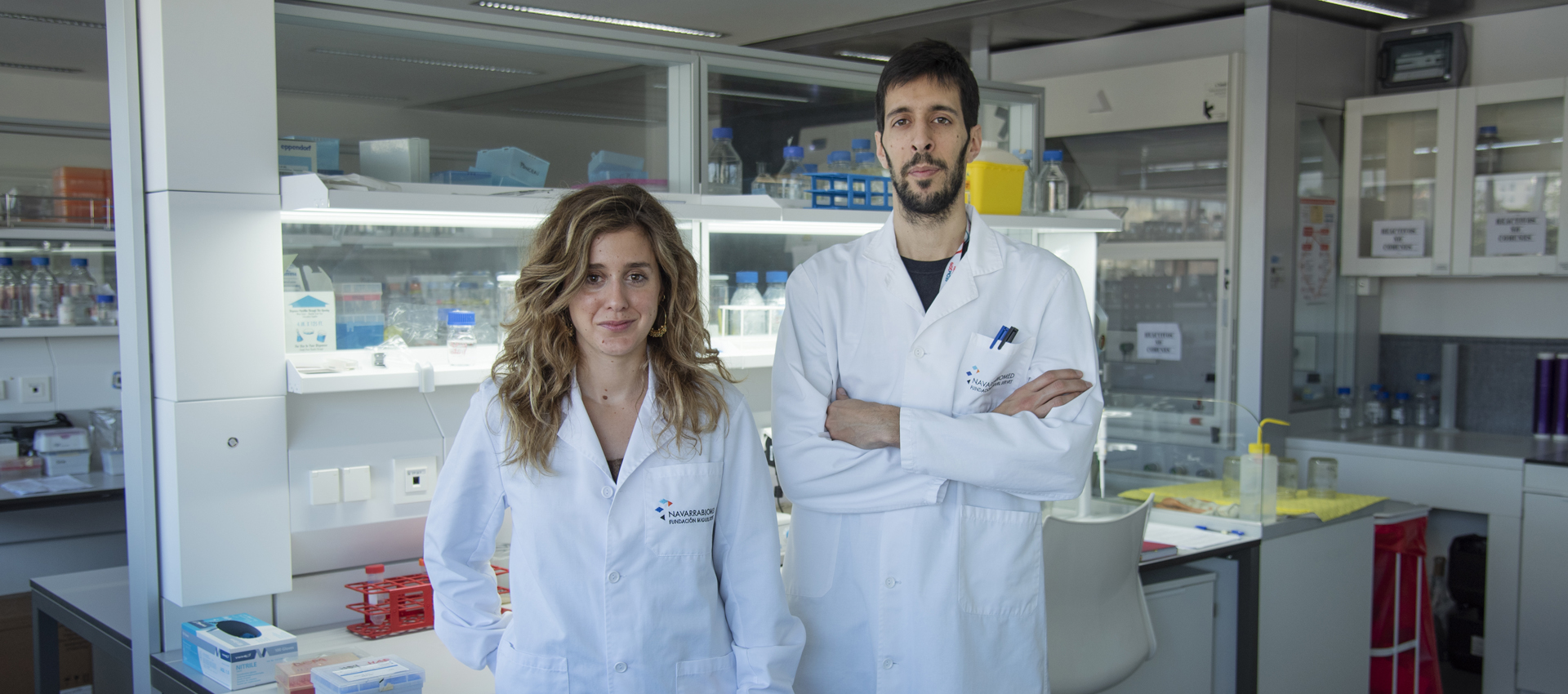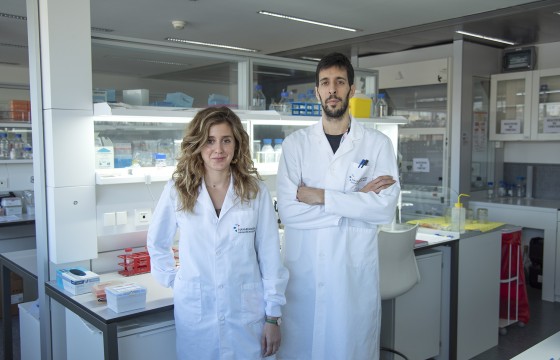
Study on Phenomenon of Tumour Hyperprogression in Non-Small-Cell Lung Cancer as Adverse Outcome of Immunotherapy
Hugo Arasanz, an oncologist at the Hospital Complex of Navarre (CHN) and a predoctoral researcher in Navarrabiomed’s Oncoimmunology Unit, recently published an article in the international oncology journal Cancers. The article presents the results of a study in patients with metastatic non-small-cell lung cancer treated with anti-PD-1/PD-L1 immunotherapy, which was conducted by both medical centres with support from the Spanish Association Against Cancer (AECC).
The work focuses on hyperprogressive disease, an acceleration of tumour growth triggered by immunotherapy. This condition may affect around 15% of lung cancer patients who receive this type of treatment and is associated with lower survival rates. The research found a correlation between this phenomenon and the drastic increase in a subgroup of CD4 T lymphocytes in peripheral blood after the first cycle of immunotherapy, a finding that could lead to earlier detection and help prevent this disease.
This is the world’s first prospective study on this topic. It was conducted between 2017 and 2019 on public healthcare patients in Navarre treated with second-line immunotherapy. In the last few months, immunotherapy has been given as first-line treatment (exclusively or in combination with chemotherapy) to improve treatment of lung cancer patients.
The work was led by Hugo Arasanz and carried out in close collaboration with Miren Zuazo, a predoctoral researcher on the same team at Navarrabiomed and the leader of the research project that provided the framework for the article. The study also benefited from the participation of Grazyna Kochan, David Escors (Oncoimmunology, Navarrabiomed) and Ruth Vera (Medical Oncology Service, CHN).


